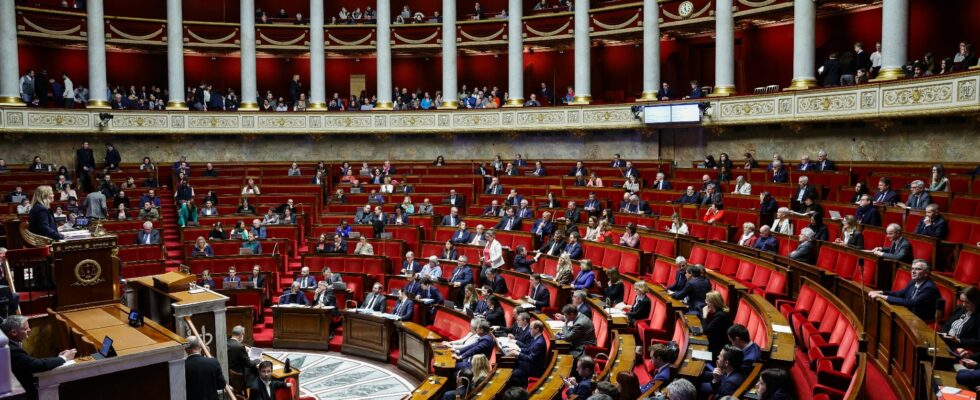The National Assembly Commission of the National Assembly resumed this Social Security Budget, which brought down the Barnier government on Monday 27, January 27 in December. Starting from the version adopted in the Senate at the end of November, the executive has already announced the abandonment or revision of certain measures. But the left would like to obtain additional concessions.
Pensions: 3 billion lost
It is too late to underestimate the revaluation of retirement pensions compared to inflation, as Michel Barnier’s ex-government wanted to do in his social security budget project, hoping to save 3 billion euros. Failing the adoption of the text, the pensions have been increased automatically on January 1, up to inflation of the last twelve months (2.2 %)
No “reimbursement” of consultations
Without the measurement being written black on white in the text, the executive provided in the fall to reduce by 5 percentage points the share reimbursed by health insurance on medical consultations and drugs, to transfer this burden to Complementary health and saving 900 million euros in 2025. The measure, regulatory, “will not be resumed,” decided the new Prime Minister François Bayrou.
According to a parliamentary source, the government could seek to save on medication differently, but “it remains very vague”. The Minister of Health Catherine Vautrin said they consider taxing complementary health, to compensate for the increase in their 2025 contributions, deemed too high.
Rising health expenses
The Social Security financing bill (PLFSS) adopted in the Senate planned to contain the increase in health spending – the national objective of health insurance spending (ONDAM) – at + 2.6 % in 2025, To reach 264.2 billion euros. But François Bayrou wants to revise the objective at + 3.3 %, to restore air to hospitals in particular. An extension of more than a billion euros. In the assembly, the left still hopes to identify additional means, underlines the socialist deputy Jérôme Guedj.
Employers’ contributions: what landing?
Pou r involveing companies in the effort to recover accounts, the ex-government Barnier initially wanted to reduce the overall amount (around 80 billion) of employer contributions exemption by 4 billion euros. The Senate had reduced this amount to 3 billion, before the macronist camp, very opposed to this measure, reached the joint joint committee (CMP) to bring the objective to 1.6 billion. On the contrary, the left would like this measurement more. The debates announce him stormy.
7 hours of unpaid work
The senatorial text provided for the establishment of a new “solidarity day” dedicated to financing measures in favor of the great age, in the form of an additional seven -hour package worked without remuneration, for each employee.
Criticized, the measure had been abandoned in CMP, then relaunched by Minister Catherine Vautrin. In the assembly, she is unlikely to pass: the left like the rapporteur LR Thibault Bazin have deposited amendments of deletion. The gain envisaged over a full year was around 2.5 billion euros, reduced to 1.8 billion following the delay in budgetary debates, according to government costing.
Behavioral taxes
To allow the security to garner new recipes, the senators had planned to increase the “soda tax” (intended to limit the quantity of sugars), taxes on tobacco, and to strengthen the taxation of games and lotteries in line. The executive has so far been estimated these measures at 300 million euros.
Cap of daily allowances
The Government plans to lower the ceiling of daily allowances paid by health insurance in the event of a work stoppage. The indemnity (50 % of the daily salary) would be capped at 1.4 minimum wage, not 1.8 as today, for a gain estimated at 400 million euros.
A deficit between 23 and 25 billion
The initial PLFSS of the Barnier government provided for a deficit of 16 billion euros, returned around 15 billion in the version voted by the Senate. But with the various abandoned measures, the delay taken with the censorship and the degradation of macroeconomic forecasts, in particular growth, the government now provides, according to concordant sources, a deficit around 24 billion euros, which would increase to 30 billion without voting from the PLFSS.
